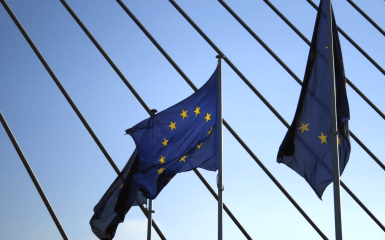The European Union's foreign ministers have adopted the 15th package of sanctions against Russia. Companies from China and North Korea have also been hit by the restrictions.
Points of attention
- The EU has approved the 15th package of sanctions against the Russian Federation, aimed at restricting the activities of those involved in Russia's "shadow fleet" and the military-industrial complex.
- The sanctions list includes 54 individuals and 30 organizations from Russia, China, and North Korea, including companies that support Russian military aggression.
- The US is considering increasing sanctions pressure on Russia, including restricting relations in the lucrative oil trade, to weaken Putin's war machine.
- It is expected that the new sanctions may affect some types of Russian oil exports, in order to avoid Russian interference in Ukraine's internal affairs.
- The European Union and the United States continue to support Ukraine at all levels, including humanitarian, economic, and diplomatic aspects, to win the conflict with the Russian Federation.
What is known about the 15th package of EU sanctions against Russia?
As noted, the new sanctions package is aimed at restricting the activities of Russia's "shadow fleet" and weakening its military-industrial complex.
We will continue to support the Ukrainian people at all levels: humanitarian, economic, political, diplomatic and military. There is no doubt that Ukraine will prevail,” said Kaia Kallas, EU High Representative for Foreign Affairs and Security Policy and Vice-President of the European Commission.
The sanctions list includes 54 individuals and 30 entities from Russia, China, and North Korea. These include the Russian "shadow fleet," military personnel involved in the strikes on Okhmatdyt, and individuals responsible for the deportation of children and the spread of propaganda.
For the first time, sanctions have been imposed on Chinese companies supplying drone components and microelectronics to support Russian military aggression. The measures include travel bans, asset freezes, and restrictions on the provision of economic resources.
The list of ships banned from EU ports and maritime services has also been expanded, with 52 tankers from third countries belonging to Putin's "shadow fleet". The total number of vessels targeted by sanctions has increased to 79.
The list also includes 32 new entities that contribute to the Russian military-industrial complex. They face increased restrictions on the export of dual-use goods and technologies that could improve Russia's defense sector.
These companies and organizations are located not only in Russia, but also in third countries, including China, India, Iran, Serbia, and the UAE.
The US wants to increase sanctions pressure on Russia
According to insiders, the White House may impose tougher sanctions against Russia's lucrative oil trade.
The main goal of Joe Biden's administration is to weaken dictator Putin's military machine before Donald Trump returns to the US presidency.
What is important to understand is that the details of possible new sanctions are still being worked out, but official Washington is currently considering restrictions that could affect some types of Russian oil exports.
According to anonymous sources, the current American leader hesitated to make this decision for a long time due to fears that it could provoke a jump in energy prices, especially on the eve of last month's presidential election.
But with oil prices plunging amid a global glut and growing concerns that Trump may try to force Ukraine into a quick deal with Russia to end the nearly three-year war, the Biden administration is now open to more radical action.




